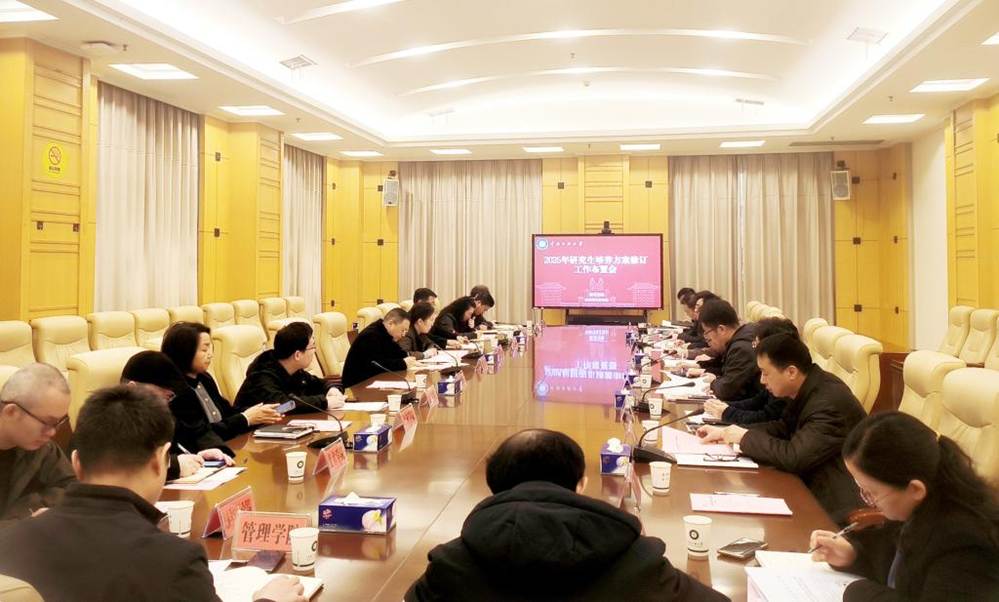On the morning of March 20, SCMU held a meeting at the Academic Exchange Center to formally launch the comprehensive revision of its graduate education programs. The meeting was attended by Qin Rui, Standing Committee Member of the University Party Committee and Vice President, along with vice deans responsible for graduate education from various schools and leaders from the Graduate School. Qin Jun, Dean of the Graduate School, presided over the meeting.

Meeting in session. Photo by Ma Yanyan
Representatives from the Graduate School provided a detailed overview of the 2025 revision initiative, addressing the background, guiding principles, key tasks, and implementation requirements. They highlighted the critical challenges and focal points of the revision process. Participants engaged in thorough discussions on curriculum design, credit requirements, development of practical teaching materials and case studies, and mandatory program components.
In his concluding remarks, Vice President Qin Rui emphasized that graduate education programs serve as foundational documents for talent cultivation and represent crucial mechanisms for implementing the fundamental mission of moral education and advancing disciplinary development and educational reform. He noted that this revision should be guided by national education policies while closely aligned with the university’s actual disciplinary development, highlighting distinctive academic features, optimizing curriculum systems, and strengthening practical innovation capabilities.
Qin stressed three key principles: First, maintain a problem-oriented approach, addressing issues such as the overemphasis on academic research in professional degree programs, the undergraduate-level teaching methods in graduate courses, and etc. Solutions should be developed through disciplinary evaluations and graduate feedback to precisely tackle educational challenges. Second, be responsive to societal needs by aligning with national strategies and regional socioeconomic development requirements, actively integrating artificial intelligence into teaching practices, and deepening the integration of science with education and industry with academia. Third, ensure accountability by establishing specialized working groups within each school, broadly soliciting input from faculty and students, and inviting members of disciplinary review panels and professional degree teaching guidance committees to participate in the evaluation process, ensuring the revision work proceeds scientifically, systematically, and efficiently.